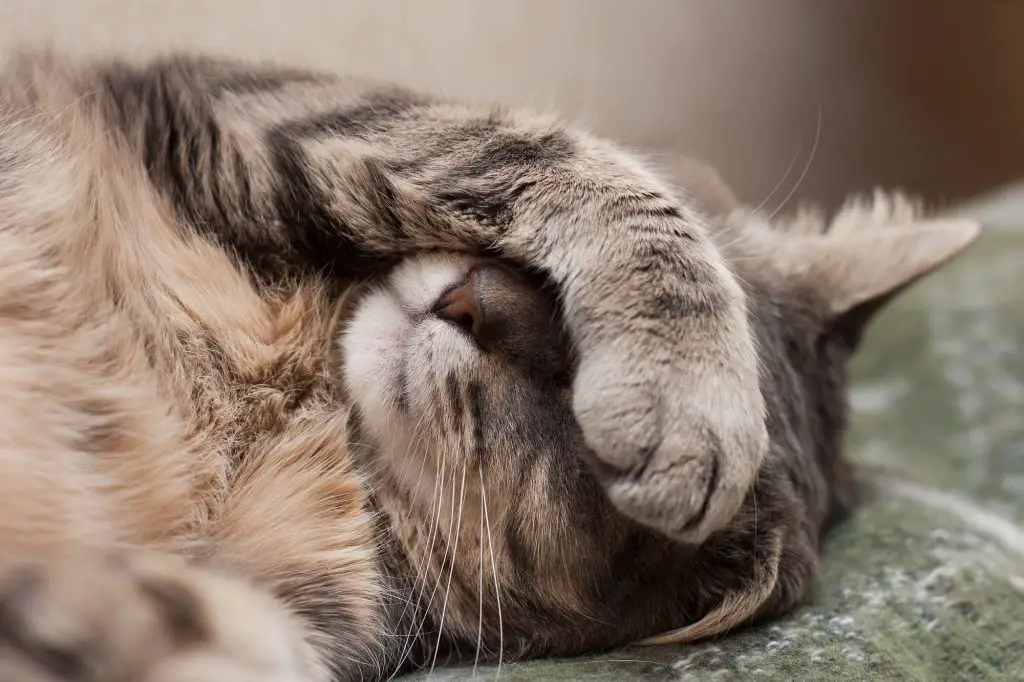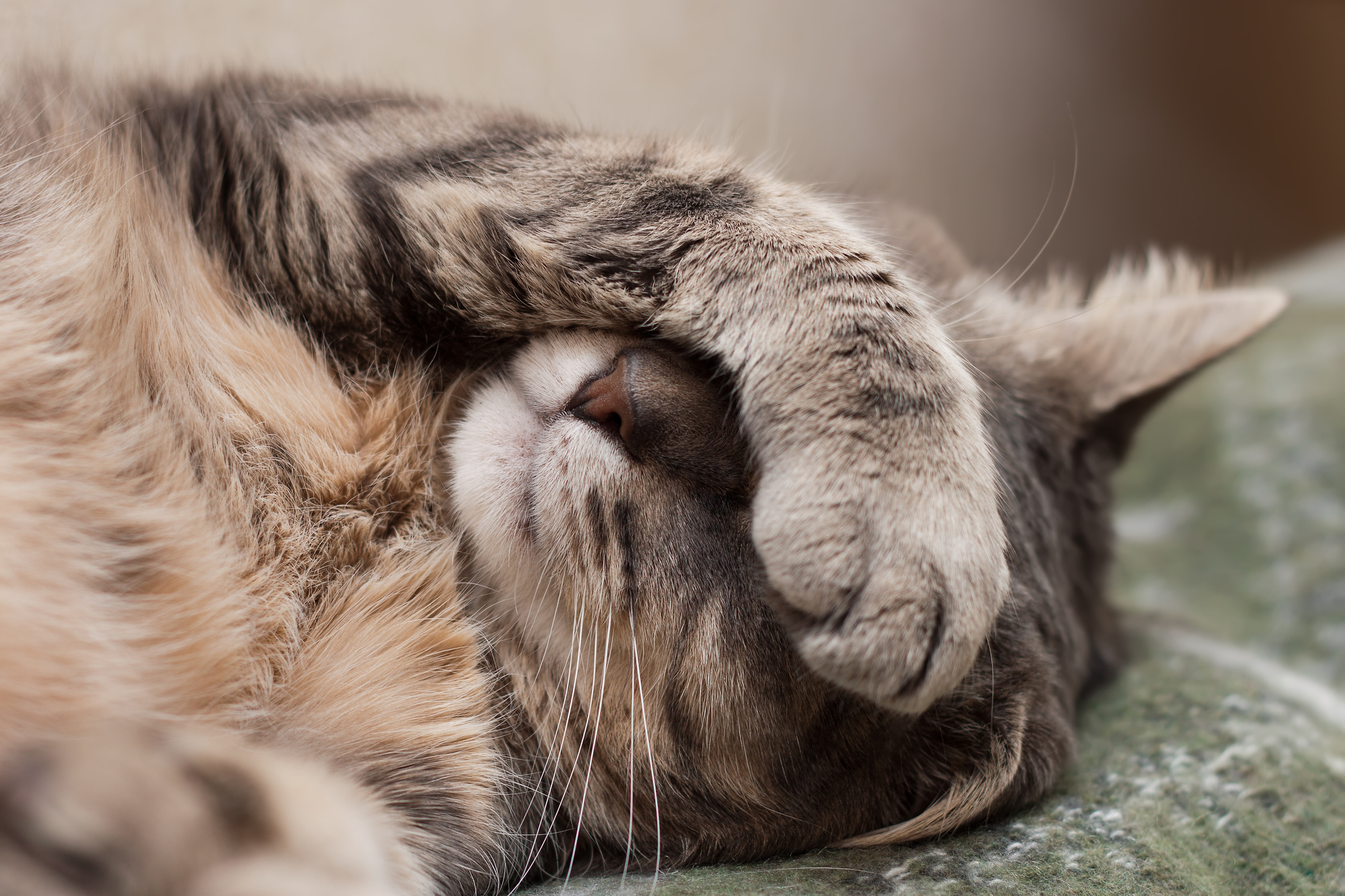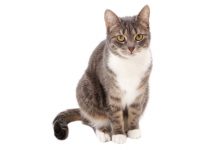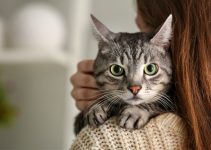Have you noticed your cat’s eyes watering recently? Although cats are great companions, they can still catch illnesses and diseases that can become a threat to their health. There are approximately 40 million households in the US that have cats as pets. Do you wonder Why Are your cat’s eyes watering?”
Continue learning to learn 5 Symptoms and prevention guide.
So why do cats’ eyes water? Are they irritated, allergies, injury, or illness? It is worth trying to decide what could be the cause before you contact your vet.
Do you want to learn more about why your cat’s eyes are watering? Here are the main reasons your cat’s eyes are watering.

Contents
Irritated, Allergies, Injury, or Illness?
Why do cats’ eyes water? Most healthy cats will produce a little discharge from their eyes. Every time your cat blinks, the eye is washing away any trapped dirt that could cause damage.
Their tear ducts also release moisture to provide oxygen and lubricate the surface of the eye. A cat’s eyes could be watering because they have an infection or mild allergic reaction. This can be treated with a prescription or procedure provided by your veterinarian.
If the symptoms are mild enough, you can treat them at home.
Symptoms of Cats Eyes Watering
There are several reasons why your cat’s eyes are watering. A cat’s eyes have a protective layer that washes away any dirt and foreign objects. If you notice that your cat’s eyes are watering more than usual then this could be an early warning sign.
Cat Eye Watering and Squinting
If your cat is squinting and rubbing its eyes then you should take it to see a vet immediately. Excessive blinking, squinting, and overflowing tears could indicate that there is a blocked tear duct (nasolacrimal duct). This could be due to physical obstruction, inflammation, or an infection.
Some cat owners suggest placing a warm compress against the tear duct to allow the obstruction to pass. If this does not help then a visit to the vet is in order. Your vet may try to flush the tear duct with saline whilst the cat is under anesthetic.
If your cat has one eye-watering then this is a sign that their eye is fighting an infection or foreign object. Some kittens are born without functioning tear ducts. In these cases, the vet may perform a special procedure to pierce the ducts.
Inflammation and Redness
Redness around your cat’s eyes could suggest they are suffering from feline conjunctivitis (pinkeye). This is a very common problem for cats which can affect them at any age. They may also have some light sensitivity and swelling.
A vet will be able to tell whether your cat needs treatment by searching for the cause of the inflammation. Antibiotics may be prescribed by the vet if a bacterial infection is present. Some ointments and medications can help decrease allergic reactions.
Feline herpes can also cause pinkeye. A vaccine is available to protect them from getting infected. Antiviral drugs are available to help ease the symptoms should your cat become infected.
Sticky Discharge
A sticky green or yellow discharge can be a sign of infection. Clear discharge can indicate that there is a viral infection. An early diagnosis can prevent serious complications further down the line.
Your vet may prescribe an antibiotic ointment, gel, or eye drops to clear up the infection.
Pain and Swelling
If your cat is in pain and has swelling around their eyes then take them to see a vet. These symptoms could be indicative of feline glaucoma. This is an emergency and the cat will require immediate attention from a vet.
It is important to seek help immediately to prevent sight loss and further discomfort. Injury and trauma can also be a cause of pain and swelling. A fight with another cat could result in eye injuries that cause excessive tearing.
Sneezing and Nasal Discharge
Sneezing can be a sign of a feline respiratory infection or cat cold. The symptoms can be similar to human cold symptoms. Cat colds are common and not a cause for concern if they clear up in a week.
other symptoms could include coughing, loss of appetite, fever, and difficulty breathing. Speak to a vet straight away if the cold does not improve after a few days.
Now that you know “Why Are My Cat’s Eyes Watering?”, learn the prevention and risk factors below.
Prevention and Risk Factors
Many symptoms of cats’ eyes watering can be eased at home. Severe infections, viruses, or injuries should be treated by a vet. Mild cases can be treated with ointments, drops, and antiviral drugs.
You can prevent your cat from getting watery eyes by keeping its face clean. You can use a damp cotton ball with warm water by wiping from the tear duct outwards. This will help to remove any dust, dirt, and debris that could irritate your cat’s eyes.
Treating the primary cause of the cat’s watery eyes can help their eyes return to normal. The tear duct can drain the excess fluid from the eye and expel any foreign objects. Some cats will experience an overproduction of tears due to a blockage of the nasal duct.
Some cat breeds are prone to excessive eye-watering. Flat-faced breeds experience watery eyes and discharge due to their face shape. Their short muzzles mean there is less space for proper drainage from the eyes to the tear ducts.
Some cats may not have fully developed tear ducts. This can lead to excessive tearing and discharge. Allergies and sensitivities can also lead to watery eyes. You can speak to your vet about how to make your cat comfortable when their symptoms flare up.
Cats Eyes Watering? Contact Your Vet Today
Are your cat’s eyes watering due to being irritated, allergies, injury, or illness? By using this guide you should be able to find the reason behind your cat’s discomfort. If you have any concerns about your cat then you should contact your vet as soon as possible.
Now that you have read our article “Why Are My Cat’s Eyes Watering?”, Do you want to learn more about cats and their behavior? Help your feline friend live their best life by learning how to keep them happy and healthy. Check out the cat section of our website at Animal Fate for more interesting and helpful information!



